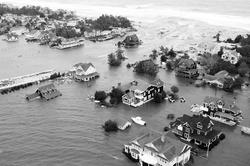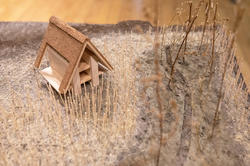Six funded projects explore radical solutions to longstanding problems that impact the environment and marginalized communities.
RISD Biodesign Researchers Work to Clean Up the Providence River
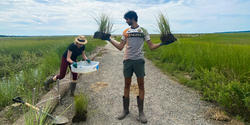
How can environmentalists help fellow citizens understand the importance of clean waterways and a diverse aquaculture to our long-term planetary health? That is one of the key questions a team of RISD-based researchers set out to answer when they came together in 2021 to consider novel approaches to improving the quality of the water in the Providence River.
“We were looking for a holistic way to reintroduce wetland biology to the river while promoting community stewardship,” says team member and recent RISD grad Avantika Velho 22 ID. She worked with fellow Industrial Design students Varun Mehta 21 ID and Manini Banerjee 23 ID and faculty lead Katia Zolotovsky to develop a series of floating biofiltration pods (“BioPods”) made of mycelium (the root system of the reishi mushroom) embedded with biogenic matter that filter the water without the use of chemicals or electricity and support the growth of wetlands. Funded by a RISD Somerson Sustainability Innovation Grant, the project is garnering attention from local residents as well as environmental experts throughout the region.
“We were looking for a holistic way to reintroduce wetland biology to the river while promoting community stewardship.”
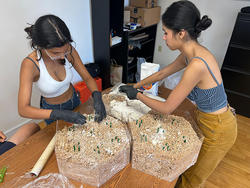
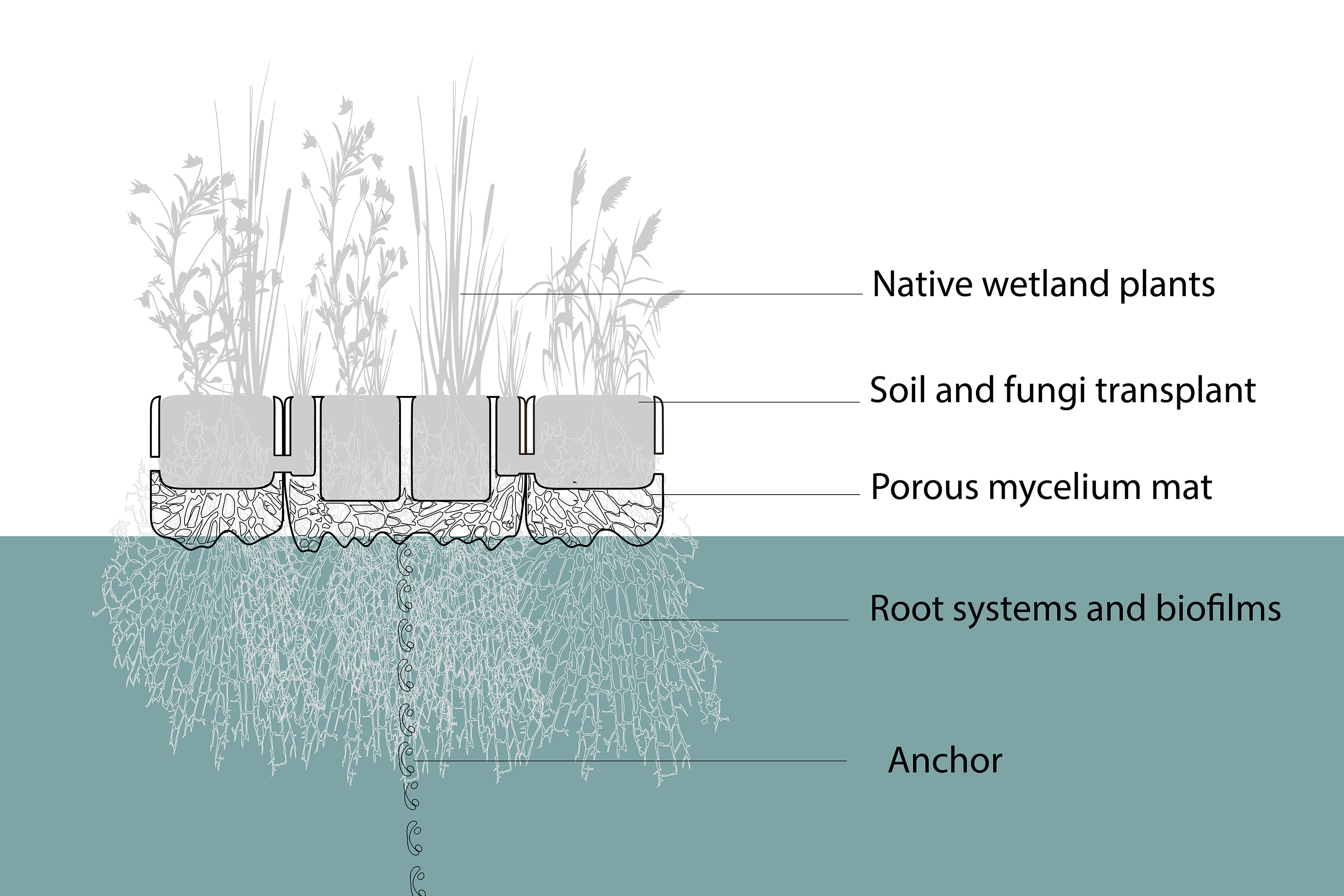
“We centered our attention on the Providence River because it is a significant waterway in the Blackstone River corridor, an urbanized river with a long history of pollution,” Zolotovsky explains. “Providence’s Climate Justice Plan focuses on cleaner energy, air and soil, but we wanted to make people aware of the importance of water health and aquatic biodiversity.”
Ecologist and marine scientist Jennifer Bissonnette, director of RISD’s Nature Lab, has supported the project from the start. “Wetlands purify and replenish groundwater reserves, stabilize shorelines and protect adjacent areas from storm and flooding events,” she explains. “Projects such as these bring some of that ecological function back to areas where it’s critically needed.”
The team began by growing floating bases for the pods using mycelium and then embedded plants into the bases to create microbe-friendly mini-ecosystems. “We conducted a lot of research into indigenous plants for both saltwater and freshwater systems since the Providence River is brackish,” says Banerjee. “We surveyed and collected plants from Tillinghast Place [RISD’s bayfront property in Barrington] and attempted to create the perfect environment for bacteria that can decontaminate the water.”
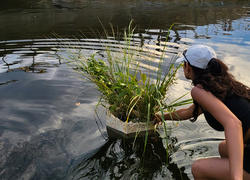
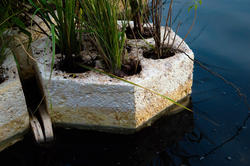
The base, which needs to be anchored, can also work in saltwater and freshwater environments depending on the plants that are embedded into it. “And the mycelium base itself is really good at detoxifying pollutants, too,” Velho adds. “Fungi are the Earth’s decomposers; they give us soil and nutrients.”
Mehta is particularly invested in the community-building aspect of the project, which came next. “Through collaborations with community-focused organizations, including Roger Williams Park Research Center, WaterFire Providence and local makerspaces, we were able to integrate the community, rather than working solely with scientists,” he says.
Now that the pods have been deployed for over a month, the team is removing them and testing them for metal accumulation, PH and nitrates as well as examining the “slimy” biofilms that have accumulated underneath their bases. “We know this is not the most efficient way to filter water, but the BioPods also build the soil along the banks of the river as they degrade, essentially creating a miniature wetland to support life in the river,” says Velho.
This fall they are continuing to conduct community workshops and also collaborating with the Stormwater Innovation Research Center in Providence to build on the work they have completed thus far, tweaking the design for future iterations, moving beyond the proof-of-concept phase and working with Rhode Island’s Department of Environmental Management to establish other possible waterways in which to deploy the pods.
“It’s really an exciting time!” says Velho. “We have lots of ideas about how to improve the BioPods and, as designers, we’re always thinking about the next iteration.”
Simone Solondz
October 2, 2023
